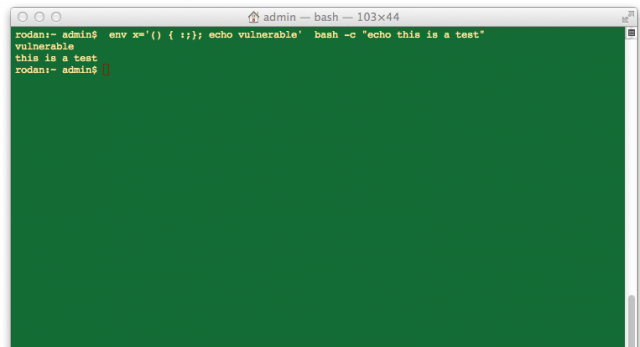The Bash bug could very well outrun Heartbleed, which affected around 500,000 machines.


Remember the Heartbleed bug back in April 2014? As a refresher, it was a security threat in the OpenSSL cryptography software. Now, another bug has risen up from the ashes just in time to freak us all out again. “Shellshock” is a newly discovered bug in Linux and Unix operating systems, and it's kind of scary in how easy it is to attack. Security researcher Stephane Chazelas found the computer bug in Unix Bash software (a command prompting program), “leaving Linux machines, routers, older IoT devices, and more vulnerable to attack” (PCWorld). Don't think you aren't susceptible to this threat if you run Windows. Most people use more Linux systems than they even realize. In fact, most of what you see on the Internet today is running on Linux distributions equipped with the Bash shell. This includes web-connected devices, web-powered services, and of course servers.


Because bugs like this are hard to measure, security experts are not sure how widespread it is and who is vulnerable. According to ArsTechnica, versions 1.14 through 4.3 of GNU Bash are affected. Patches have been issued to the following Linux distribution vendors:
Red Hat Enterprise Linux
CentOS (versions 5-7)
Ubuntu 10.04 LTS, 12.04 LTS, and 14.04 LTS
Debian
To test vulnerability on your Linux or Unix system, from a command line, type:
env x='() { :;}; echo vulnerable' bash -c "echo this is a test"



 Laptop & Tablet Parts
Laptop & Tablet Parts




















